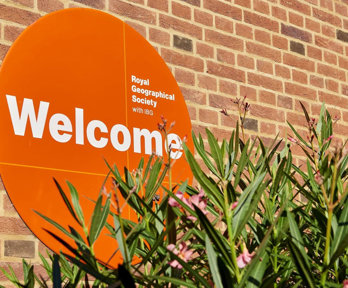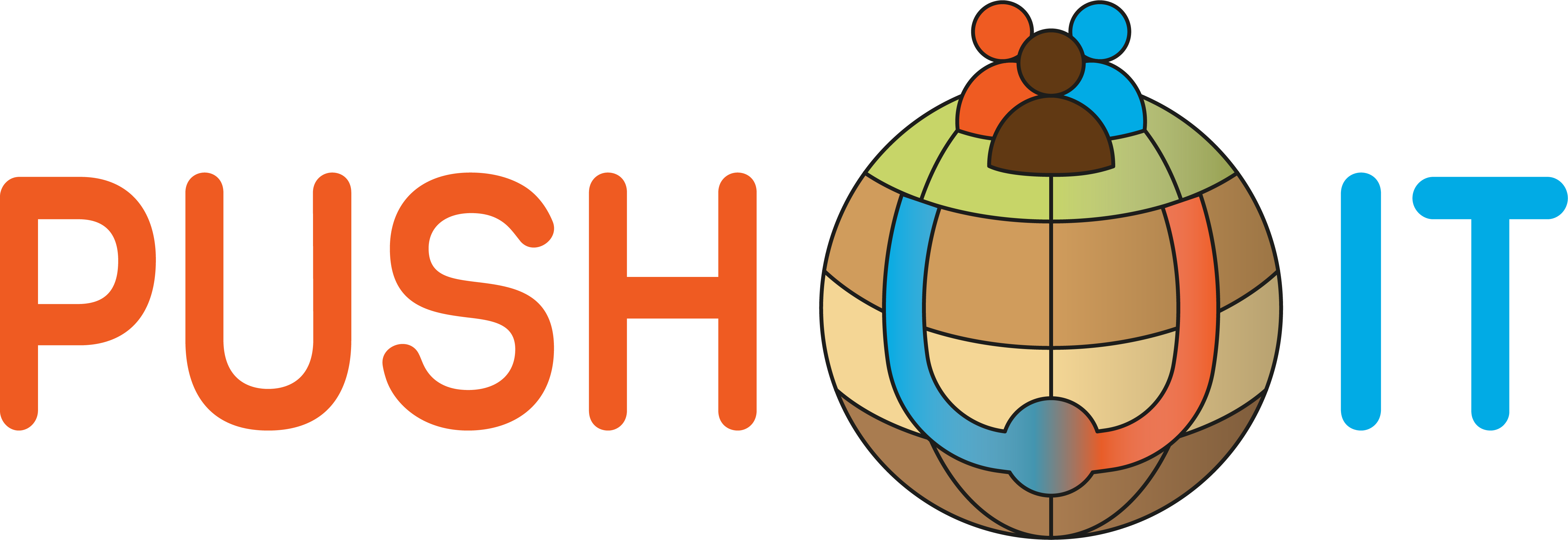PUSH-IT at the RGS Annual International Conference
At the end of August, a few researchersfrom our consortium attended the Royal Geograpical Society’s (RGS) Annual International Conference in Birmingham, England. Madeleine Kechagia and Merryn Thomas also gave presentations on “Methods and challenges of interdisciplinary collaborations” and “Diverse collaborations for creative energy engagement” respectively.
The Annual International Conference is held by the BGS and regularly attracts over 2,000 geographers from around the world. It is four days full of presentations, lectures and exhibits around a theme, which was “creative geographies” this year.

Methods and challenges of interdisciplinary collaborations
Madeleine Kechagia and others gave a presentation on the methods and challenges of interdisciplinary collaborations. The presentation reflected on experiences from the PUSH-IT project. The project emphasizes that while new technologies are crucial for the energy transition, their success also depends on effective and context-sensitive societal engagement. Insufficient public and stakeholder engagement can create barriers to social acceptance and deployment of such technologies.
Madeleine discussed how their interdisciplinary team of energy geographers and geoscientists has worked to improve engagement practices within PUSH-IT. Methods include interviews, meeting observations, monthly surveys, and webinars to support consortium partners and share learning about “good engagement”.
She highlighted challenges typical of demonstration projects—such as public unfamiliarity, technical/regulatory uncertainties, fixed sites and timelines, and unclear responsibilities for engagement—and stress the importance of social science perspectives in largely technical projects.
Overall, the talk shared insights on building “best engagement practices” for technology demonstrations and how collaborative, reflective processes can strengthen social acceptance of energy innovations.
Diverse collaborations for creative energy engagement
Merryn Thomas also gave a presentation, together with some of her colleagues. This talk addressed the challenge of public disconnection from energy and explores how creative, participatory approaches can make energy more relatable and engaging. Drawing on the PUSH-IT project, the team co-created resources to engage the public with both large-scale technologies (underground thermal energy storage, UTES) and small-scale, everyday practices.
Key initiatives include the PUSH-IT Catalogue of Engagement Activities, developed with site partners across four EU/UK countries, and The Climate Comic Activity Book, designed with schools and care homes to foster intergenerational climate dialogue. Methods range from design sprints to hands-on kitchen science and crafts.
The presentation reflected on the benefits and challenges of working with diverse co-creators, showing how creativity and collaboration can make complex energy concepts accessible, build new networks of expertise, and foster inclusive public dialogue. Ultimately, it highlighted the role of co-creation in transforming energy systems through both infrastructure and behavior change.

PUSH-IT is a project funded by the European Union’s Horizon Europe research and innovation programme under grant agreement No 101096566.
Funded by the European Union. Views and opinions expressed are however those of the author(s) only and do not necessarily reflect those of the European Union. Neither the European Union nor the granting authority can be held responsible for them.
